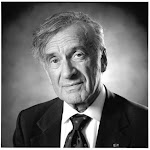Elie Wiesel, begins by giving the reader a brief assessment of the novel, Night, and its deep significance. He says that without reading this novel, his first, all books written later in his career cannot be fully understood. And once he has giving the book a worth introduction, he proceeds to humble himself, describing his survival of the Holocaust as nothing close to a miracle, but merely chance.
While writing, Wiesel describes have a terrible time describing the atrocity and the difficulty he faced having to select words to create an image where nothing on earth could come close to a proper metaphor. Then came the fear that his story would not be accepted, for how could it. No one could know the awful nature of the living at Auschwitz unless they had lived through it. Wiesel then decided that he hopes it could be understood, rather than more deeply known.
Finally, Elie Wiesel reflects on the overall success of his novel in portraying the memory of his pasting generation. He is amazed by the transformation in society, once so forgetful and a topic so unpopular, now is becoming a revived movement with courses offered in universities and books read as part of high school curriculum. Wiesel sees this as a great hope for the future generations, who will only know about what happened through the memories of those who experienced the past. So with the Holocaust survivors' numbers dwindling everyday, many people have begun to reach into the past and learn about it for themselves, keeping a little piece of the memory to pass on to their next generation as a witness to the dead and the living.
Subscribe to:
Post Comments (Atom)



.jpg)

No comments:
Post a Comment